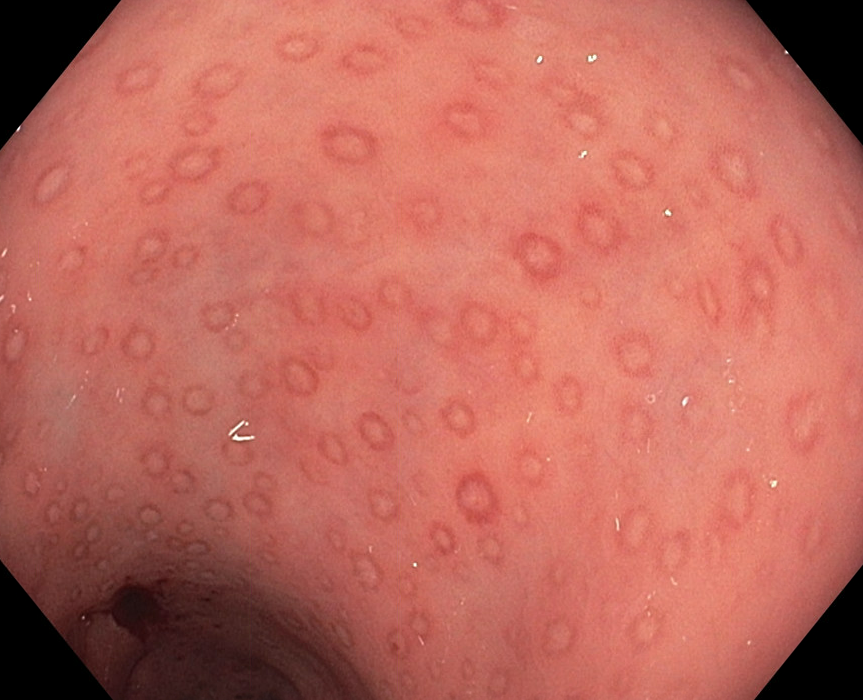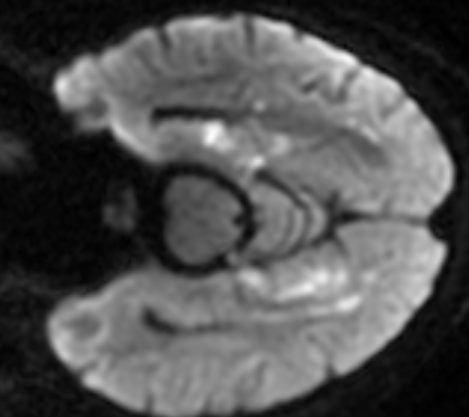Tuesday Poster Session
Category: Colon
Aphthous Ulceration of Colon as an Uncommon Source of <i>Streptococcus gallolyticus</i> Bacteremia Causing Cardioembolic Sequelae
P4667 - Aphthous Ulceration of Colon as an Uncommon Source of Streptococcus gallolyticus Bacteremia Causing Cardioembolic Sequelae

Bilal Ashraf, MD (he/him/his)
HCA Healthcare Kingwood Hospital/University of Houston
Kingwood, TX
Presenting Author(s)
1Gujranwala Medical College, Punjab Pakistan, Gujranwala, Punjab, Pakistan; 2HCA Healthcare Kingwood Hospital/University of Houston, Kingwood, TX; 3Houston Methodist Hospital, Houston, TX; 4HCA Healthcare Kingwood Hospital/University of Houston, Houston, TX; 5HCA Healthcare, Kingwood, TX
Introduction: Streptococcus gallolyticus (Bovis) bacteremia is commonly associated with colorectal cancer however, any other form of colonic mucosal disruption like polyps, ulcers or colitis can cause bacterial translocation resulting in bacteremia and if not diagnosed timely, may cause catastrophic effects as seen in this patient who presented with infective endocarditis and resultant embolic stroke.
Case Description/
Methods:
A 70-year-old female with no known past medical history came to hospital after she was found unresponsive. On admission, the patient was found to be septic with tachycardia, elevated white count, fever, and acute encephalopathy.
CT scan of abdomen revealed a wedge-shaped area of hypo-enhancement within the spleen, suspicious for an old infarct. Blood cultures were drawn, and the patient was started on broad spectrum antibiotics.
An MRI of the head was performed due to encephalopathy, which showed patchy acute infarcts in bilateral medical temporal-occipital lobes and 1.8 cm acute left thalamic infarct (figure 2). Transesophageal echo was done given concern for an embolic stroke, which revealed a low ejection fraction of 30%, diffuse hypokinesis and mitral valve vegetations.
Blood cultures grew Streptococcus Bovis (now known as Streptococcus gallolyticus). The gastroenterology team performed a colonoscopy which showed multiple widespread superficial ulcerations in the entire colon from the rectum to the cecum (Figure 1); however terminal ileum was normal. Biopsy results indicated chronic active colitis with no granuloma, crypt abscess, dysplasia, or malignancy. Testing for cytomegalovirus and herpes simplex virus was negative.
Given the overall guarded prognosis, the family decided to proceed with hospice care.
Discussion: Streptococcus gallolyticus is commonly associated with colorectal cancer; however other conditions that may disrupt colonic mucosal integrity, such as polyps, ulcers or inflammatory conditions like colitis, may cause bacterial translocation and bacteremia. American Heart Association and Infectious Diseases Society of America guidelines recommend colonoscopy in all cases of Streptococcus gallolyticus bacteremia to identify any underlying mucosal lesions. In this patient, the presence of aphthous ulcers resulted in Streptococcus gallolyticus bacteremia and resultant infective endocarditis and cardioembolic stroke. Physicians should be cognizant of other non-neoplastic mucosal lesions as possible causes of Streptococcus gallolyticus bacteremia.

Figure: Aphthous ulcerations in entire colon.

Figure: MRI showing multiple embolic infarctions.
Disclosures:
Minahil Batool indicated no relevant financial relationships.
Bilal Ashraf indicated no relevant financial relationships.
Zainab Saeed indicated no relevant financial relationships.
Galvin Dhaliwal indicated no relevant financial relationships.
Aakriti Soni indicated no relevant financial relationships.
Ahmed Ouni indicated no relevant financial relationships.
Minahil Batool, 1, Bilal Ashraf, MD2, Zainab Saeed, MD3, Galvin S. Dhaliwal, MD4, Aakriti Soni, MD4, Ahmed Ouni, MD5. P4667 - Aphthous Ulceration of Colon as an Uncommon Source of <i>Streptococcus gallolyticus</i> Bacteremia Causing Cardioembolic Sequelae, ACG 2025 Annual Scientific Meeting Abstracts. Phoenix, AZ: American College of Gastroenterology.
